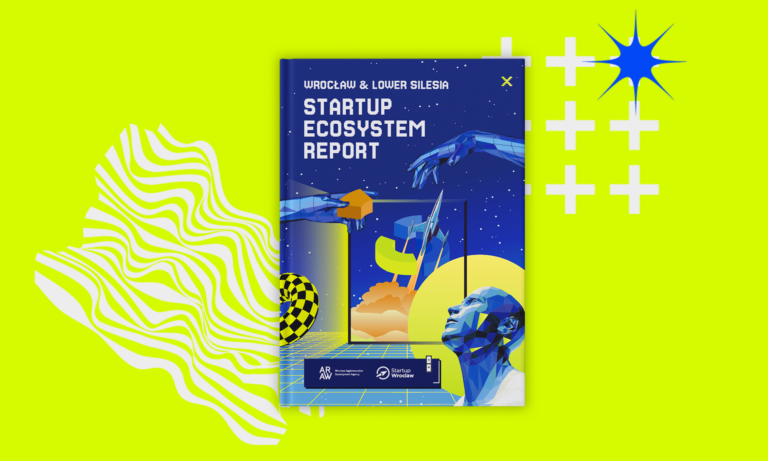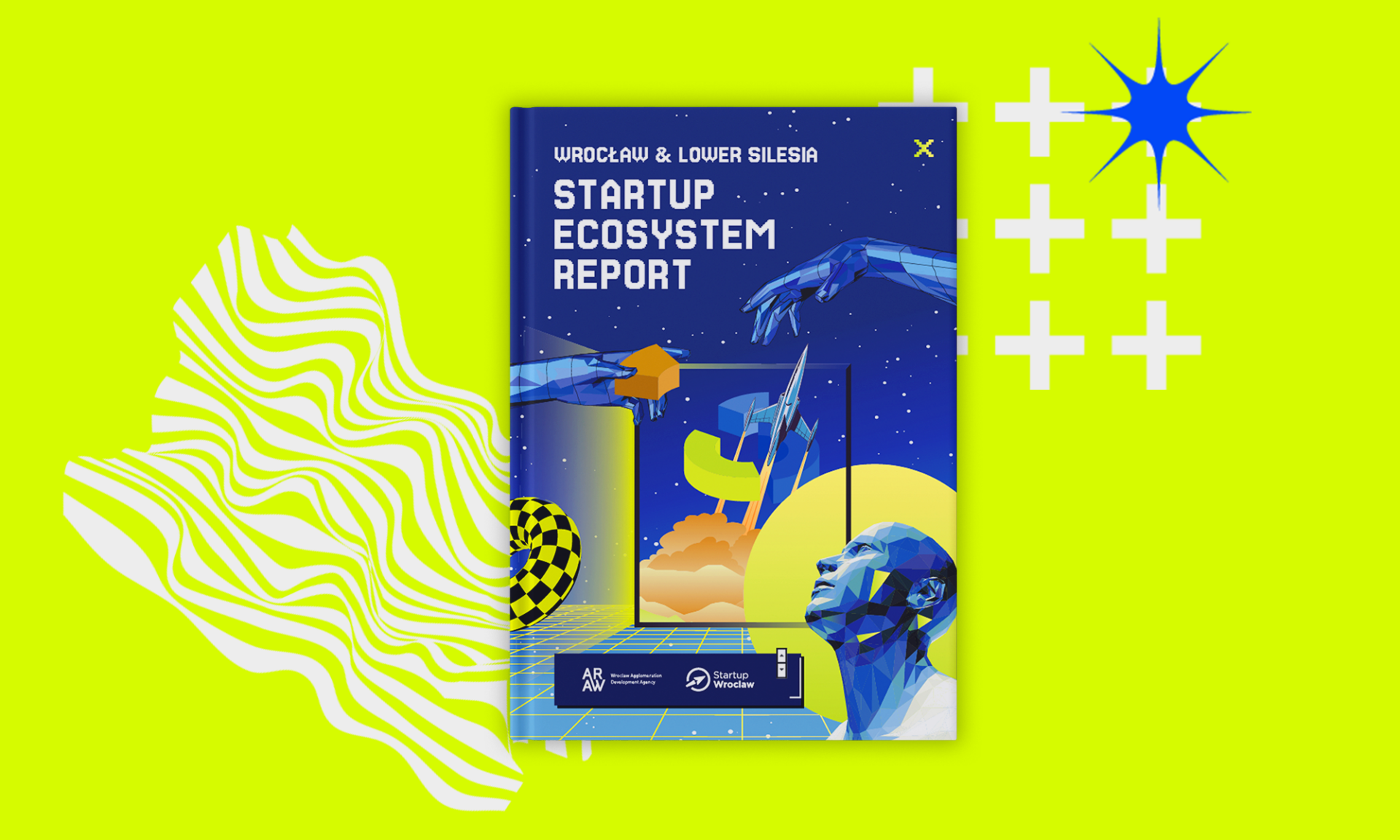How was the Wrocław and Lower Silesia Startup Ecosystem Report created?
“The first day is behind us. It’s not easy to organize Made in Wrocław, but we have 200 people at the second edition of VC Demo Day. Today also saw the premiere of our report.”
Paulina Muszyńska, head of Startup Wrocław ARAW.
It wasn’t easy to create this report either. Work on it began back in 2024. It involved hundreds of conversations and hours spent with partners, including investors, the Tech Business Angels Club, and the founders of startups themselves, conducted since January 2025. It also involved a survey sent to representatives of the Lower Silesian business world and conclusions that were included in a nearly 200-page compendium. It is this compendium that today provides a “soft landing” for people coming to Wrocław to start a business.
“We will definitely continue this report—this is its first edition. We have collected data on seven stakeholder groups. Everyone will find something for themselves in it, see how it used to be, how it is now, and plan their next steps in the ecosystem—both if they want to start one and if they want to invest in it.”
Paulina Muszyńska – head of Startup Wrocław
A journey through the business ecosystem
Selected data from the report was presented at the beginning by Dr. Yash Chawla from the Faculty of Management at the Wrocław University of Technology, the main researcher of the Wroclaw & Lower Silesia Startup Ecosystem Report.
“This is not just a report, it’s much more than that,” he told the audience gathered at the Bridge Hotel in Wrocław. “It’s not one, but seven perspectives on the startup ecosystem from seven stakeholders,” he emphasized.
“We created the report using three mechanisms: knowledge obtained from our partners, data contained in already published reports, including the most recent ones, which we meticulously compiled and analyzed, and finally, we collected information from all seven stakeholder groups using surveys. Each group had its own set of questions.”
Dr. Yash Chawla from the Faculty of Management at the Wrocław University of Technology, lead researcher of the Wroclaw & Lower Silesia Startup Ecosystem Report
The report was discussed by partners
The panel presenting the report focused on issues related to the functioning of the startup ecosystem. It presented different perspectives on the establishment, financing, and functioning of startups.
Among other things, the panel addressed the issue of intellectual property (IP), which, due to the fact that it is created within universities, often poses a problem when it comes to talks with investors.
“During the panel, we discussed, among other things, the problems startups face at the stage of creating, building, and commercializing intellectual property. It is important that the formalities are completed on time. I see this report as a startup bible, which will be expanded in future editions,”
emphasizes Tomasz Szarek, legal advisor and managing partner at SDZLEGAL SCHINDHELM.
“The report is an interesting starting point for verifying our ideas about what other stakeholders think about specific issues in the startup ecosystem. As a fund, we have our own experience in working with investors and startups, but this report will probably reveal some new ideas to us.”
Paweł Florkiewicz – WP2 Investments
Among the partners are people who provide business support, but also those who have gone through the startup phase themselves in their careers.
Natalia Świrska-Załuska, Startup Program Lead CEE at OVHcloud, founded a startup herself almost a decade ago. “The startup market has grown tremendously since then, and Made in Wrocław has played a significant role in this,” she emphasizes.
The leader of the startup program at OVHcloud said during the panel that startups are a bit like teenagers. What did she mean? “Our market is a bit adolescent in terms of development—we act impulsively, we are still learning, and we don’t really think about what will happen to us in the future. But that’s completely normal! A dozen or so years ago, we had startups in their “childhood.” We still have to mature in certain areas, but that’s a completely normal path of development.
“At BNP Paribas, we work with the Huge Thing accelerator. Thanks to it, startups can test their solutions on a living organism, i.e., on the banking infrastructure — after thorough verification, of course. In the spring edition, we accepted two companies for cooperation, whose names we cannot disclose. The two startups that everyone already knows about are Autenti and Envirly. These are companies that perfectly match the needs of our customers, among others,”
assures Dr. Magdalena Miecielica, Director of Business Development with Innovative Companies, Bank Paribas Polska SA.
“Wrocław is the second city after Warsaw with the highest number of registered startups. As WSSE, we want to support the ecosystem by connecting large businesses with start-ups.”
Anna Sawkiewicz – coordinator of the InvestUp project at the Wałbrzych Special Economic Zone
As a representative of a business environment institution, Anna Sawkiewicz did not hesitate to share with us what kind of startups she is currently looking for. “We are currently looking for projects that could support manufacturing companies in the field of chemistry and wastewater treatment.”
Can a startup be truly innovative today?
We heard many answers to this question today, and as many people were asked, there were just as many points of view on where the future lies for young companies, which sector they should target, and which path of development they should take. Undoubtedly, however, the recurring answer was: yes, startups can still surprise us.

